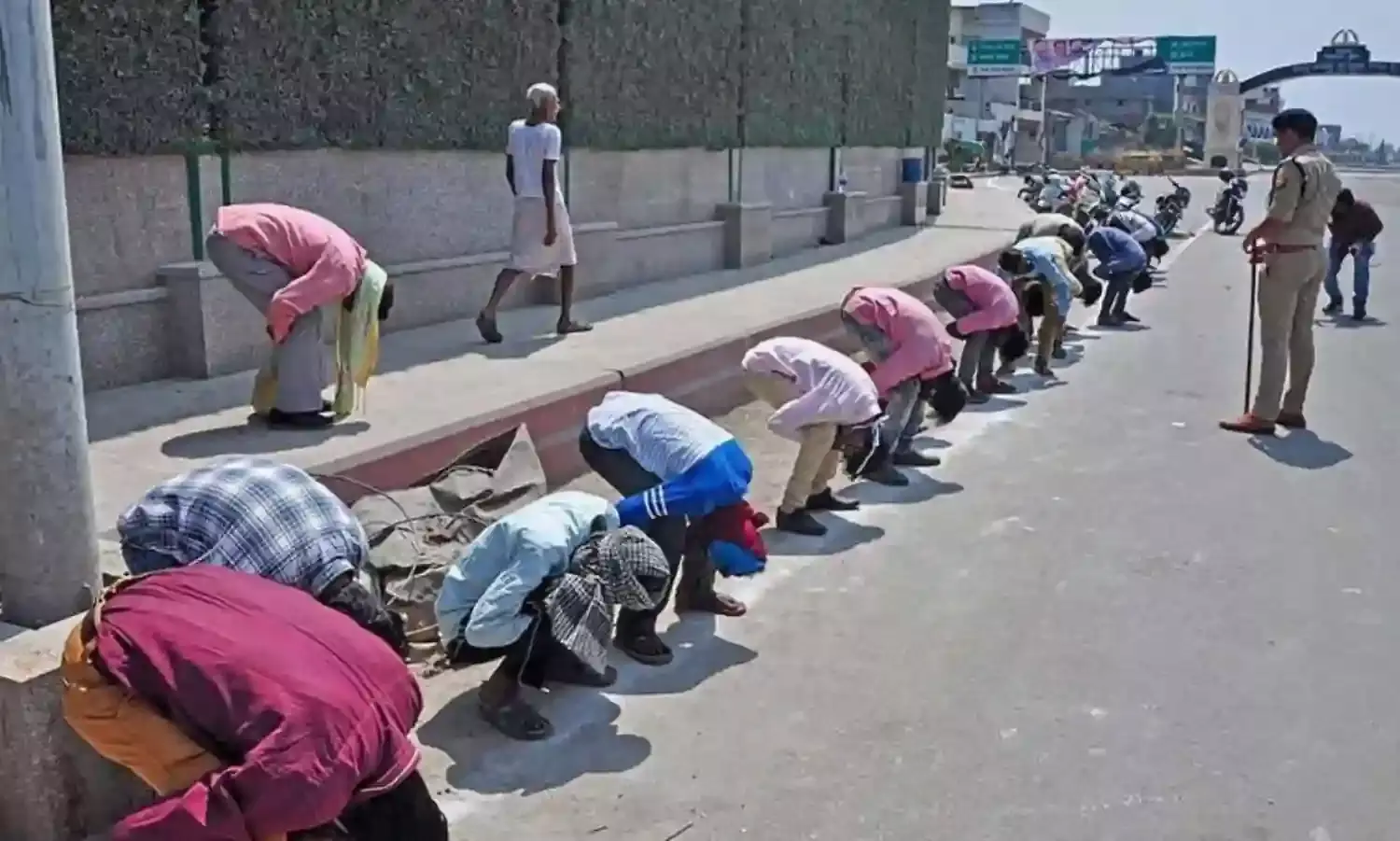The Emergency and Today’s Thriving Democracy
A facade

Prime Minister Narendra Modi did well to salute the citizens of India whose extraordinary struggle and sacrifice forty-five years ago against the imposition of Emergency by Indira Gandhi saved India from becoming a dictatorship.
Those were indeed terrible days. All of a sudden the normal picture of the country was changed. The nation was in the grip of fear.
A Presidential Order suspended Article 226 of the Constitution. The courts became mute spectators as the government brazenly trampled on people’s fundamental rights, including the right to live. The police prepared lists of those who raised voices of protest against the government.
Journalists, writers and social activists faced the main wrath. In the midst of such repression some people did not give up; they fought fearlessly against a marauding state machine.
It was because of their struggle and sacrifice that India remained a democracy.
The whole country rose against state oppression and the flame of revolt engulfed its length and breadth. Violent protests, police firing and even flag marches by the Army were a daily occurrence.
To funnel the spontaneous movement into a focussed mass struggle, Jayaprakash Narayan, a venerated socialist leader of the Freedom Struggle stepped forward to assume leadership of the pro-democracy movement.
Young leaders of all opposition parties cutting across ideologies were in the forefront of the struggle. Many including the late Arun Jaitley, then an RSS student leader in the ABVP, were put behind bars. A host of other Rashtriya Swayamsevak Sangh leaders and activists, Narendra Modi among them, played significant roles in that struggle and suffered for it. In fact, it was shortly after this period that the Bharatiya Janata Party was formed in 1980.
In the end, the people’s struggle defeated the forces of dictatorship, and democracy survived in India.
Given this background, the Prime Minister would have been more than justified in reminding the nation of the dark days of the Emergency. Unfortunately, however, many actions of the union as well as the states in the six years the BJP has been in power would have left even Indira Gandhi blushing.
It will of course be wrong to say that Emergency has been proclaimed in present day India. Far from it. The present leadership has mastered the trick of how to subvert democracy while keeping its facade intact.
To a great extent they have succeeded in suppressing even a murmur of protest against the government, by projecting everyone who disagrees with them as “anti-nationals”, using all the tools of a formally democratic system.
After twice receiving the electorate’s overwhelming support, the last half-decade shows how busy they are in rewriting the dictionary to make all dissent and difference from the government synonymous with “sedition”.
It is from this attitude - of brooking no opposition to anything the central government does - that the authorities slapped charges of sedition on the activists and scholars accused in the Bhima Koregaon case. After months of “probing” they could find nothing against them, except that they are vociferous supporters of Adivasis’ rights.
This mindset also promotes the false notion that people have no right to protest against an Act that Parliament has passed.
Many people see the Citizenship (Amendment) Act as a blatant expression of anti-Muslim politics. Whether they are right or wrong, the Constitution guarantees their right to protest against any legislation or policy, as long as their protest takes a legalised form. Yet the celebrity anchors of big media have been obliquely propagating the falsehood that protesting against an Act passed by Parliament is a crime!
It is interesting to note that those denouncing the “excesses” of the 1975 Emergency have no qualms in slapping draconian provisions of the UAPA and other undemocratic laws on the anti-CAA protesters.
These are good yardsticks to measure the depth of their love for democracy, with hundreds of cases in the past six years where government agencies have blatantly misused these legislative provisions to throw young and old political activists behind bars.
According to reports, some 55 Indian journalists are in jail simply because they reported some misdeeds of politicians or senior bureaucrats, or filed reports about anti-government protests in many parts of the country.
Reporters like Ashwini Saini and Om Sharma are in jail in BJP-ruled Himachal Pradesh because they did their duty in reporting the plight of migrant labourers due to the apathy of the district administration, or reported on “missing” rations that were meant for the common man.
Saini’s case is telling as it seems that the number of FIRs against him increased in proportion to his letters to the Prime Minister of India and the Chief Minister of Himachal Pradesh.
At the same time there are many mediamen who are more equal than others, who can bully people on their so-called panel discussions and even in public places, and still get relief from the courts.
The same courts have no time or patience to listen to the cries of agony of those on the other side of the divide.
Against this background, all the tall talk about people’s struggles against the Emergency, democracy prevailing over dictatorship, etc., will remain mere exercises in deceit.
Sandip Mitra retired from the Indian Foreign Service in 2015



